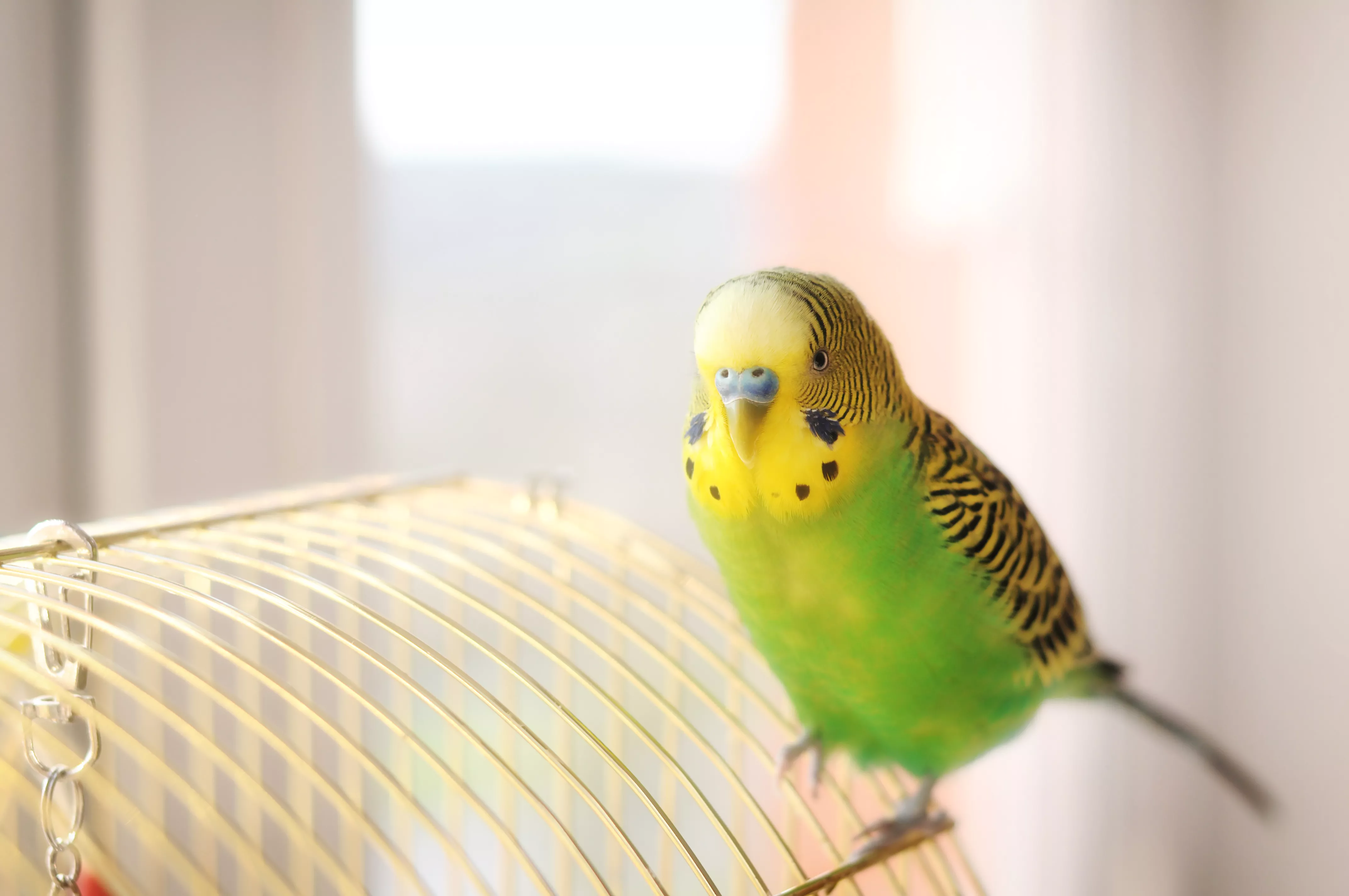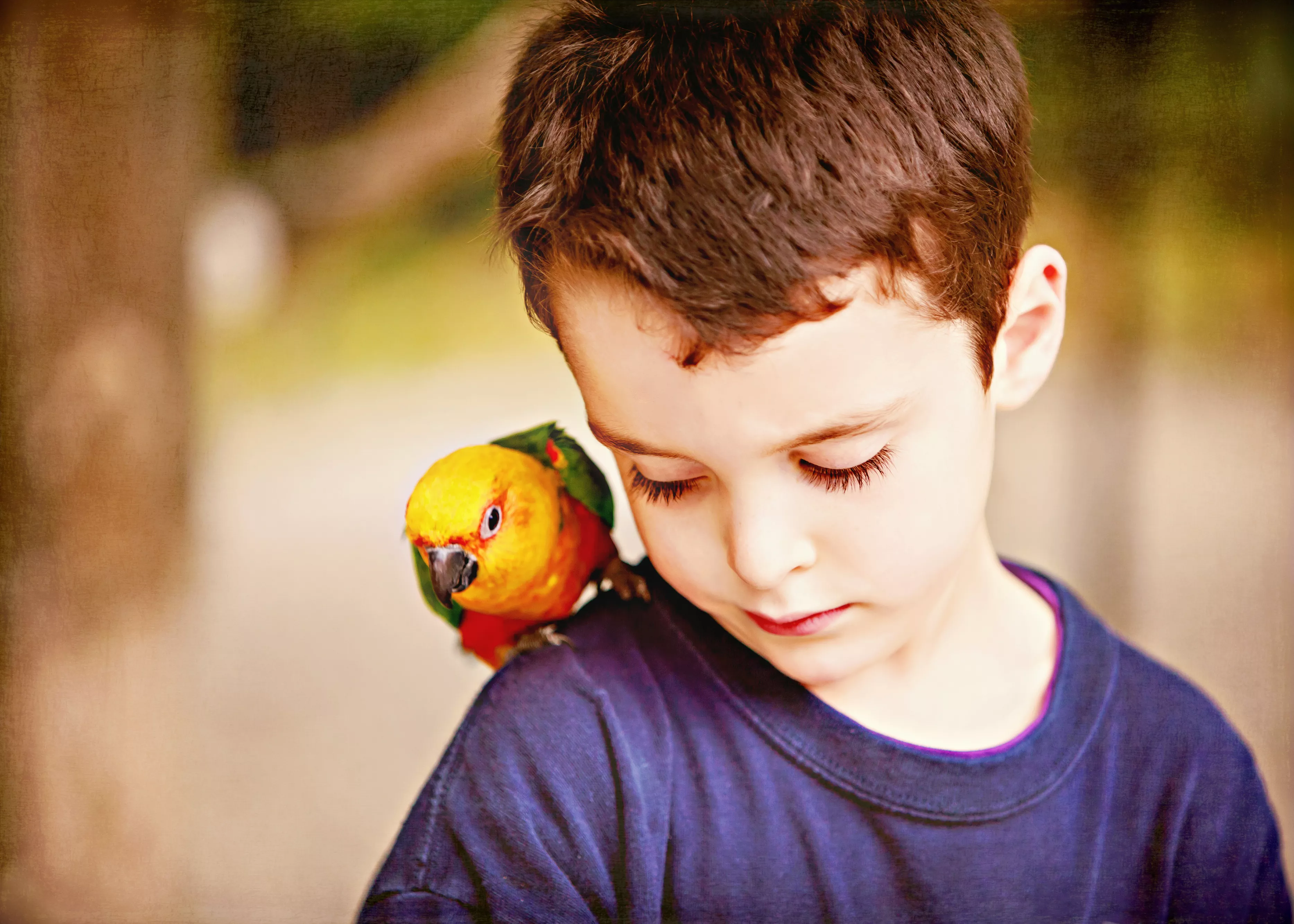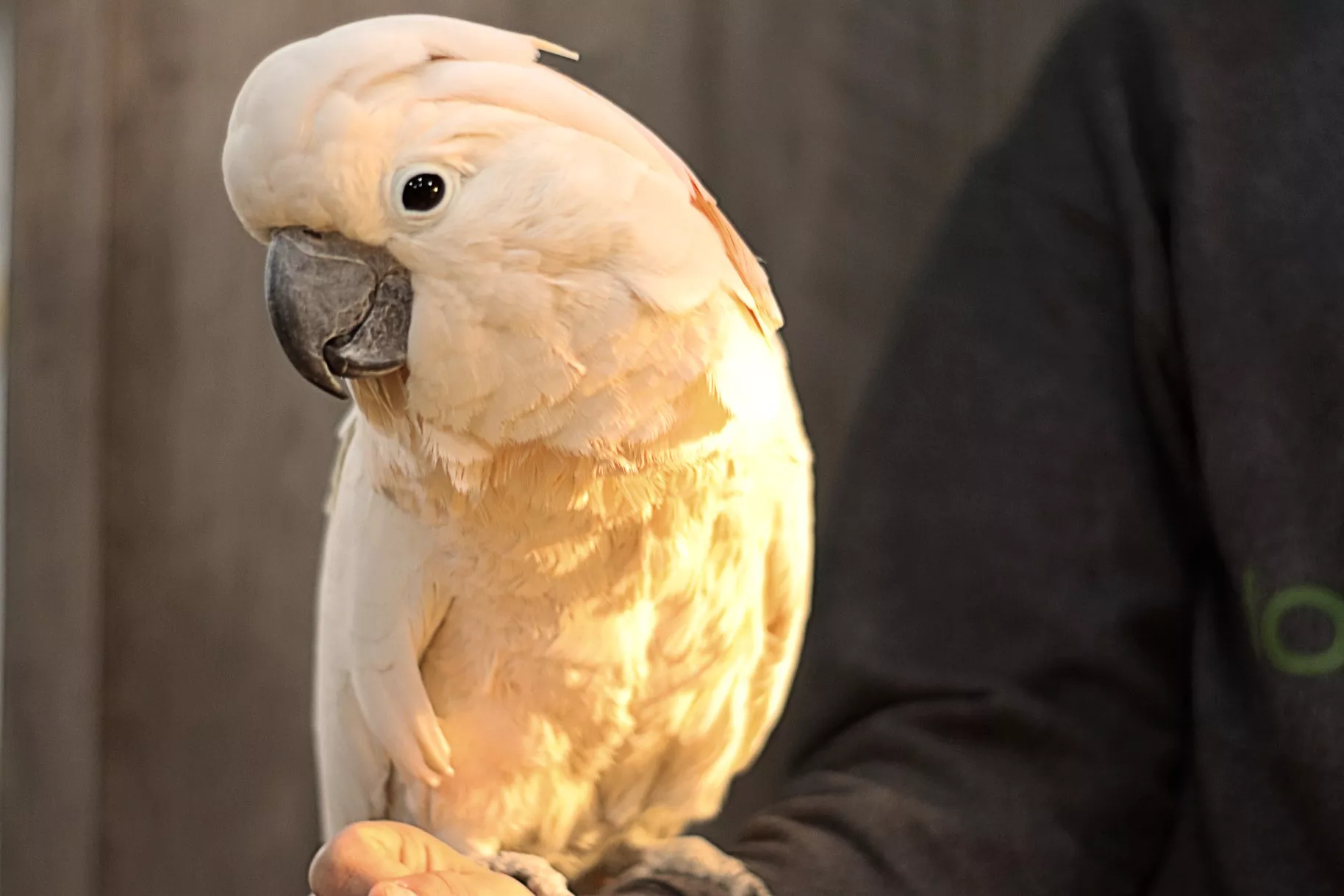-
What Is Egg-Binding?
-
Signs
-
Causes
-
Diagnosing
-
Therapy
-
Prognosis
-
Prevention
Egg-binding is a severe and generally deadly situation that impacts feminine birds of breeding age. It could have an effect on any fowl, however amongst widespread pet birds, it’s most frequently seen in smaller species together with finches, parakeets, lovebirds, canaries, and cockatiels.
Mainly, egg-binding signifies that the egg has develop into “caught,” and the fowl is unable to expel it from its physique inside a traditional time-frame, which relying on species, will be wherever from 24 to 48 hours. This causes the fowl to pressure in an try to go the egg, which house owners generally mistake because the fowl straining to defecate. Your fowl will seemingly seem ailing, lose its urge for food, fluff up its feathers, sleep greater than regular, and will have a swollen stomach. The caught egg might make it troublesome to your fowl to go feces and urine, as properly.
Since it is so necessary for egg-bound hens to obtain immediate medical remedy, house owners ought to know what indicators and signs to observe for of their pets. If left untreated, your fowl can develop into critically ailing and will die.
Contents
What Is Egg-Binding?
Many fowl house owners are shocked to be taught {that a} feminine fowl that has no contact with a male can nonetheless lay eggs. These eggs usually are not fertilized, so cannot produce a viable chick, nevertheless. Whereas not each pet feminine fowl will lay eggs, the likelihood is there for all of them.
Egg-binding happens when an egg takes longer than common to go out of the reproductive tract. Whereas the conventional size of time to go an egg varies between fowl species, and even between particular person birds, most birds go an egg inside 24 to 48 hours. Your fowl would possibly lay only one egg, or a number of eggs. It’s doable for a fowl to put an egg usually, however then expertise egg-binding with subsequent eggs.
The egg can develop into caught contained in the fowl’s vent, which is the opening for expelling supplies from the urinary, gastrointestinal, and reproductive tracts. On this case, you would possibly truly see a little bit of the egg bulging via the vent.
Eggs may bind larger up the reproductive tract. An egg might develop into caught within the oviduct, which is the tube that leads from the ovaries to the vent, or inside the cloaca, which is a chamber simply inside the vent that collects supplies from the urinary, gastrointestinal, and reproductive tracts. In contrast to mammals, birds have only one widespread opening/exit for these three organ techniques.
Signs of Egg-Binding in Birds
Birds can disguise signs of sickness till the situation turns into too superior to cover any longer. This helps wild birds survive, as a weak fowl is a straightforward goal for a predator however could make it troublesome for a pet proprietor to understand their fowl is ailing. Recognizing the indicators of egg-binding early on is essential to your pet’s survival. For those who observe any of the next signs, contact an avian veterinarian as quickly as doable. The vet can correctly diagnose your pet’s drawback and get it on the highway to a quick restoration.
Speedy or Labored Respiration
Many egg-bound hens appear like they’re having a tough time respiration, notably after exertion, resembling flying or fluttering inside their cage. Even barely labored respiration is a symptom of egg-binding.
Swelling
An egg-bound hen might seem to have a swollen stomach or present swelling round its vent from straining to go an egg. Birds with swelling on any a part of their our bodies must be seen by a medical skilled as quickly as doable.
Constipation
For those who suspect {that a} hen could also be egg-bound, watch its droppings. You must assume there’s an issue if they appear irregular or if it fails to provide any in any respect.
Fluffed-Up Feathers
Probably the most widespread signs of sickness in birds, fluffed-up feathers will also be an indication {that a} fowl is egg-bound. For those who observe your fowl sitting with its feathers fluffed up, assess it for every other signs or abnormalities.
Straining
Egg-bound hens typically visibly pressure to try to go their eggs. Egg-binding must be suspected in birds that pressure however present no progress in transferring their eggs.
Sitting on the Cage Ground
More often than not, birds which can be egg-bound have a tendency to take a seat on the cage ground. Eggs which can be caught inside a hen can put immense stress on the fowl’s backbone, generally inflicting paralysis and the lack to perch.
Lameness
If the caught egg places stress internally on the nerves that go into the fowl’s legs, it may trigger lameness and even an incapacity to face.
Lack of Urge for food
This can be a widespread symptom of a number of diseases, however in the event you discover your fowl is just not consuming, assess it for different indicators of egg-binding.
Sudden Dying
Sadly, in some circumstances, the primary and solely signal {that a} fowl is affected by egg-binding is the sudden demise of the fowl.
Causes of Egg-Binding
There are a number of causes of egg-binding. The commonest must do with the egg itself, the fowl’s weight loss plan, or points with the hen’s reproductive tract.
Typically, the egg itself is just too giant for the hen to go simply, or is positioned incorrectly contained in the reproductive system, making it not possible for the fowl to put the egg usually.
Dietary points are a standard explanation for egg-binding, notably with birds which can be poor in calcium. Lack of calcium may cause eggshells which can be weak or partially shaped, and extra liable to changing into caught. Additionally, calcium, vitamin E, and vitamin D assist the uterine and oviduct muscle groups contract forcefully sufficient to maneuver the egg via and out of the hen’s reproductive system. Overweight birds are additionally at larger threat of egg-binding.
Infections, tumors, or irritation inside the hen’s reproductive system may cause swelling that results in egg-binding.
Diagnosing Egg-Binding in Birds
Typically, your avian veterinarian can diagnose egg-binding simply by gently feeling the hen’s stomach, as it’s typically doable to really feel the caught egg inside. Nonetheless, most vets will take x-rays of the fowl, which permits them to see the precise measurement and place of the caught egg. Sometimes, an egg turns into caught earlier than the shell is absolutely shaped, making it troublesome to see on an x-ray. In case your vet suspects that is the case, they may select to do an ultrasound, which is able to present even a shell-less egg.
Therapy
A fowl affected by egg-binding must be seen by a veterinarian immediately, because the longer you wait, the much less seemingly the fowl is to outlive. As soon as on the vet’s workplace, if the fowl is decided to be critically ailing, will probably be handled for shock. This normally consists of warming the fowl, giving fluids and calcium by way of an IV right into a vein, and generally offering supplemental oxygen. In some circumstances, these measures are sufficient to permit the fowl to go the egg by itself.
If the egg would not go, the veterinarian will assess its place contained in the hen. If the egg is contained in the cloaca, it generally will be massaged out or extracted with lubricated cotton swabs.
If the therapeutic massage and pure strategies do not extract the egg, it might be needed to interrupt the egg whereas it’s nonetheless inside the hen and take away it in components. If this happens, the vet will use a needle to take away the contents of the egg, which is able to trigger the egg to break down. The vet will then clear the hen’s oviduct to take away any shell fragments or egg residue. Leaving something within the hen may result in an infection or inner tissue harm.
Prognosis
With immediate remedy, most birds will survive. Nonetheless, if the caught egg causes the hen to be unable to simply breathe or expel waste, and the fowl is not offered emergency remedy, the prognosis is poorer.
Stop Egg-Binding
Since egg-binding is a standard situation, it’s exhausting to fully forestall it. It is best to keep up a wholesome life-style to your hen. Feeding a well-balanced weight loss plan that features sufficient calcium is essential, as is stopping your fowl from changing into obese. Your fowl ought to have alternatives for train and play every day.
Nonetheless, birds that have a tendency to put eggs steadily and have skilled egg-binding could also be liable to extra episodes of this severe situation. In that case, your vet would possibly advocate hormone injections initially of egg-laying season to stop your fowl from laying an egg.
Protecting day by day watch in your hens will assist their habits and be higher conscious if they’re displaying any signs of egg-binding.







